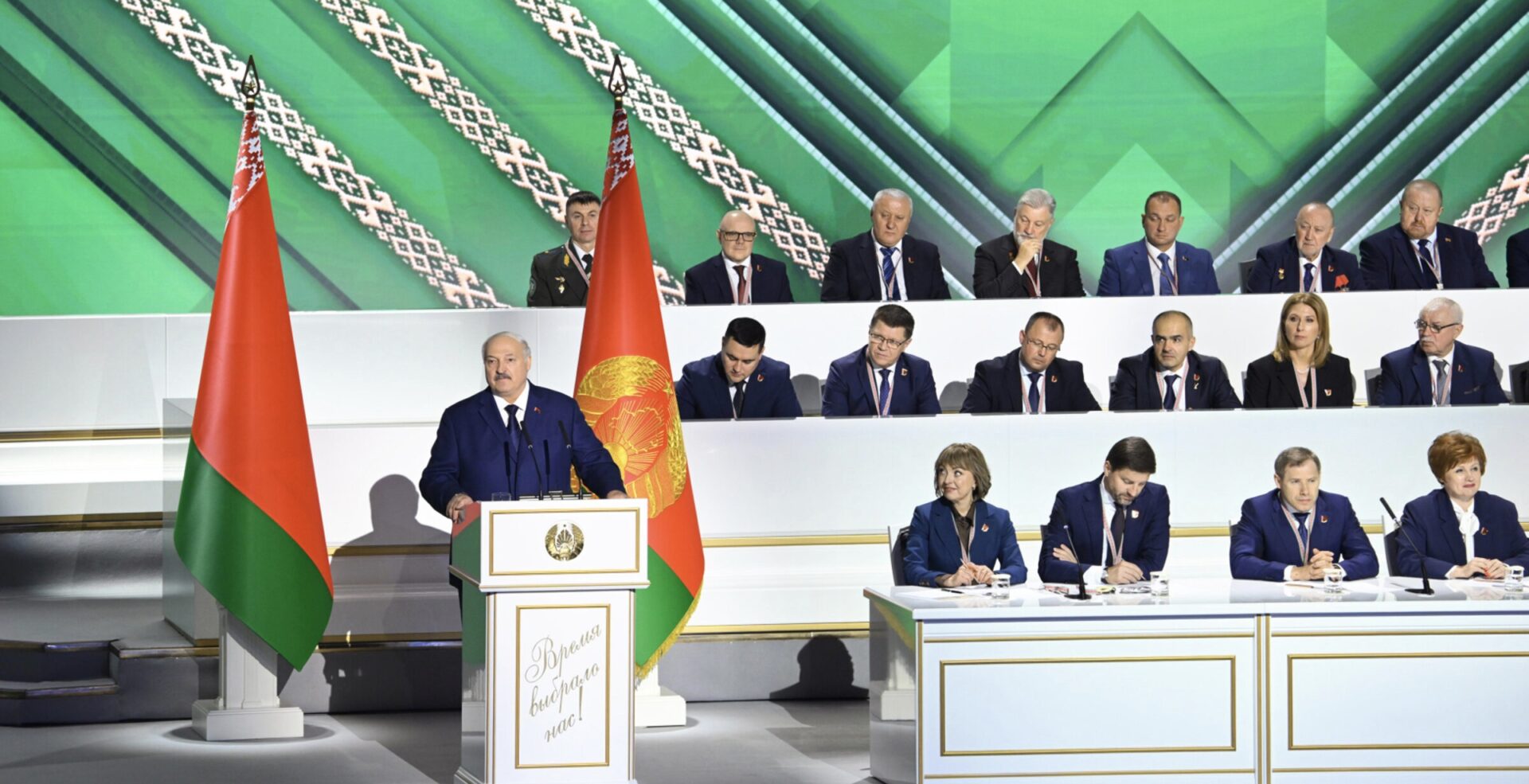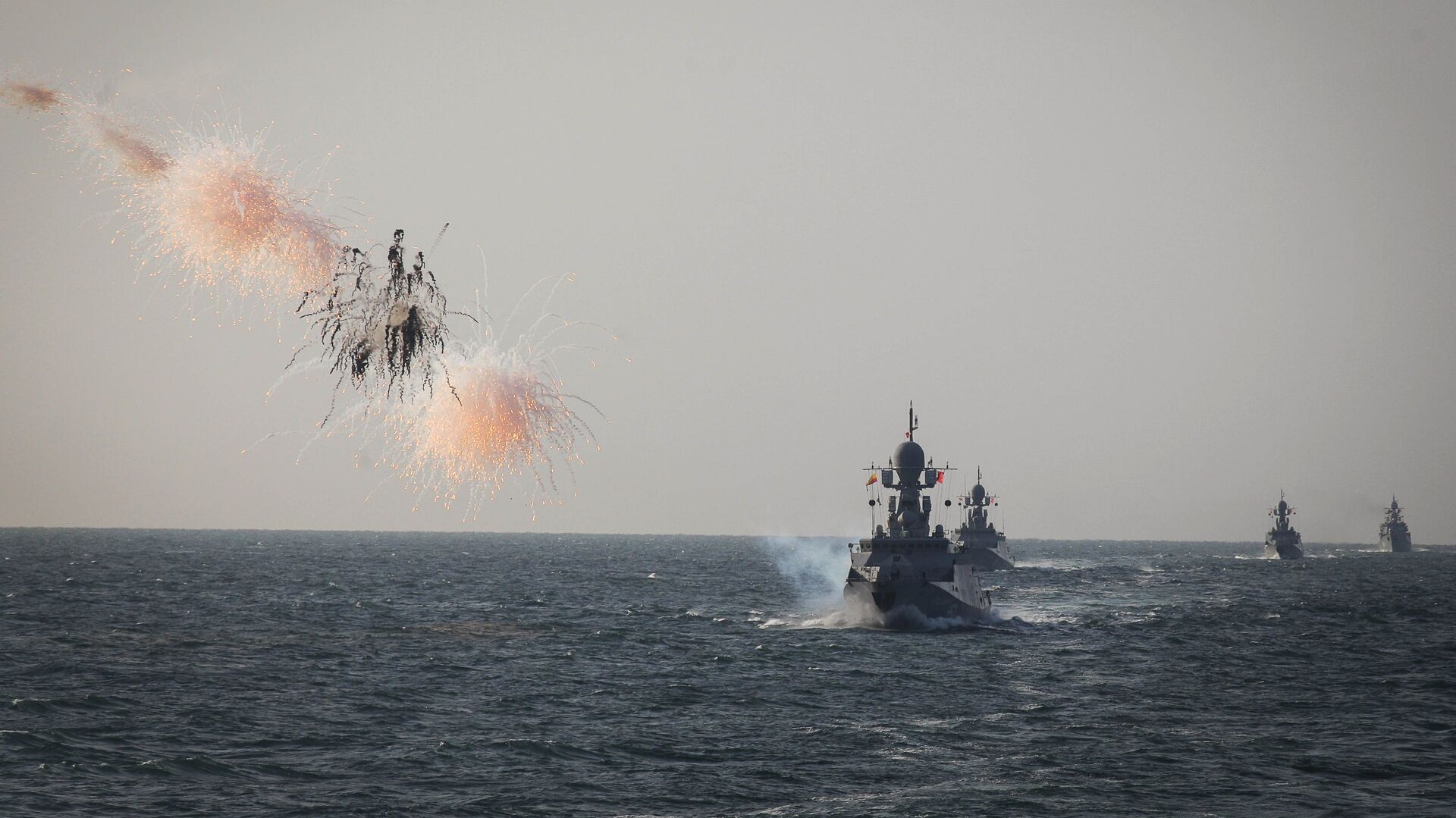
Russia Sets an Anniversary Ambush for NATO
Russia Sets an Anniversary Ambush for NATO
The meeting of 29 foreign ministers from member countries of the North Atlantic Treaty Organization (NATO), in Washington, DC, last week (April 3–4), marking the 70th anniversary of the North Atlantic Alliance, was not a joyful occasion for Russia. During the celebration, Russia was duly identified as the main disruptor of regional security. The allies asserted unity in deterring Moscow’s provocative behavior and confirmed their resolve to increase defense expenditures accordingly. In response, mainstream Russian commentators spared no sarcasm while questioning NATO’s determination, and they magnified every symptom of ostensible crisis in transatlantic relations (Russiancouncil.ru, April 4).
What caused particular outrage in the Kremlin was NATO Secretary General Jens Stoltenberg’s address to the United States Congress, in which he emphasized that freedom had enemies that could not be deterred by dialogue, specifically lumping together Adolf Hitler, Joseph Stalin and the Islamic State (Kommersant, April 4). Moscow’s urge to spoil the “hostile” celebrations of NATO’s lasting success was irresistible, but the readiness to directly challenge the security of the Alliance’s frontline states or even partners was clearly absent.
Russia found a near-perfect place for an ambush in Libya, where the civil war had appeared deadlocked but was in fact in a precarious balance. NATO took on a key role in the defeat of the dictatorial Muammar Qaddafi regime in October 2011, but was not able to contribute to post-war reconstruction. Russian President Vladimir Putin accused NATO repeatedly of overstepping its mandate for establishing a “no-fly zone,” issued by the United Nations Security Council Resolution 1973, and of deliberately targeting Qaddafi, who was ultimately killed by rebel forces (RBC, April 6). In the subsequent chaotic struggle for power in Libya, Russia put its stake on Khalifa Haftar, a veteran of the 1969 coup that had originally brought Qaddafi to power. In January 2017, this self-declared “field marshal” visited the Russian aircraft carrier Admiral Kuznetsov, which was sailing home after combat deployment in Syria. Haftar then made several visits to Moscow, the latest occurring last November (Newsru.com, April 5). A steady supply of Russian arms helped Haftar consolidate control over eastern Libya, around his stronghold in Benghazi; and the arrival of several hundred Russian mercenaries from the notorious Wagner Group empowered his motley army to capture oilfields in southern Libya a month ago (Nezavisimaya Gazeta, April 2).
Haftar’s decision to march on Tripoli, which remains under control of the internationally recognized Government of National Accord, led by Fayez al-Sarraj, came as quite a shock (Kommersant, April 6). At the time, UN Secretary General Antonio Guterres was in Tripoli seeking to facilitate peace talks scheduled for mid-April; he had to leave in haste to attend a UN Security Council session that was ultimately only able to request that Haftar stop his offensive (RIA Novosti, April 5). The Russian Ministry of Foreign Affairs denied any involvement in the sudden escalation of hostilities and expressed support for a peaceful resolution (Rossiiskaya Gazeta, April 5). It is entirely unclear whether Haftar’s forces will be able to capture Tripoli. But it is rather improbable that he will be able to establish effective control over all of western Libya, even with backing from Egypt and Saudi Arabia, which he visited in late March (RBC, April 5).
What matters most for the Kremlin in this crisis is confusion among NATO member states. Some of them, particularly Italy, are directly exposed to the fallout from the Libyan war. Moscow was quite alarmed by the reinforced NATO commitment in Washington to upgrade Alliance capabilities in the Black Sea area (Gazeta.ru, April 4). Russia’s attack on three Ukrainian naval boats near the Kerch Strait last November indeed signified an escalation of regional threats, and NATO has responded by strengthening its naval presence in this closed theater (Nezavisimaya Gazeta, April 3). Ukraine is a natural partner for the Alliance in addressing the strategic task of sustaining freedom of navigation in the Black and Azov Seas; and Moscow is anxious about plans to upgrade the NATO-Ukrainian partnership, for instance in the ongoing Sea Shield 2019 naval exercises (Kommersant, April 3). Russia has deployed plenty of air and air-defense assets in Crimea, seeking to achieve regional military dominance; but this position of power still does not translate into capacity to violate international law with impunity (Novaya Gazeta, April 6).
Moscow’s best hope for avoiding a high-risk test of wills in these waters is to provoke deeper conflict between NATO and Turkey, centered on the latter’s deal to purchase the Russian S-400 surface-to-air missile system (RBC, April 3). The Kremlin does not know what impact the recent municipal elections in Turkey will have, but it surely cannot comprehend how Turkish President Recep Tayyip Erdoğan could have allowed the opposition to score victories in Ankara and Istanbul (Carnegie.ru, March 28). Yet, seeking not to aggravate Erdoğan’s domestic situation further, Moscow is treading carefully in Syria with its offensive against rebel-controlled Idlib province, since Ankara insists on keeping Bashar al-Assad’s forces away from its “security zone” (Nezavisimaya Gazeta, April 2). The surprise attack by Haftar’s columns of armed Toyotas on Tripoli is probably driven by parochial incentives, but the coincidence with NATO’s intention to show unity and resolve in the Black Sea area is highly convenient for Russia.
Moscow’s main strategy for confronting NATO is to exploit disagreements inside the Alliance; however, this approach has recently suffered several setbacks on the southern flank. Russia’s abortive attempts to fuel the old quarrel between Greece and Macedonia ultimately failed to spoil their rapprochement. And the newly renamed Northern Macedonia is now set to become NATO’s 30th member (RBC, February 6). Manipulation of the bitter conflict between Serbia and Kosovo is also failing, as both sides engage in pragmatic talks. Moscow is increasingly worried Kosovo could soon join NATO and Serbia will upgrade its partnership with the European Union (Carnegie.ru, April 4). Fomenting trouble in Libya cannot alter this big picture, but it can produce the impression that Russia is able to project power into NATO’s vulnerable neighborhood.
Upholding unity is always a work in progress, and NATO cannot rely on timeworn habits alone. The allies need to overcome doubts in the wisdom of leadership and reluctance to pay for collective security, which can easily be taken for granted. Putin and his subordinates, meanwhile, do not understand the bonds that bring so many different nations together, and they remain devoted believers in corruption and sabotage. Low-cost conflict manipulation by the Kremlin can deliver transient victories, but it invariably backfires, strengthening coalitions of the willing to deter such Russian mischief-making.


